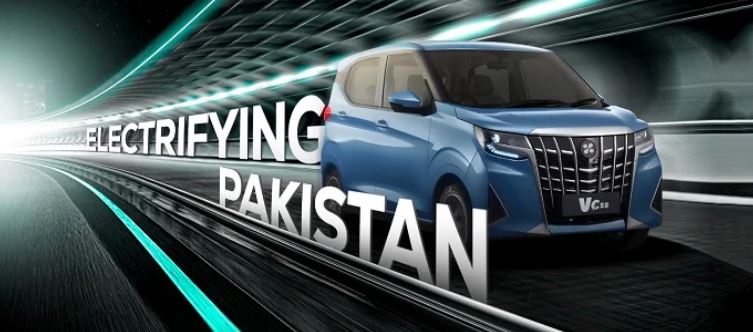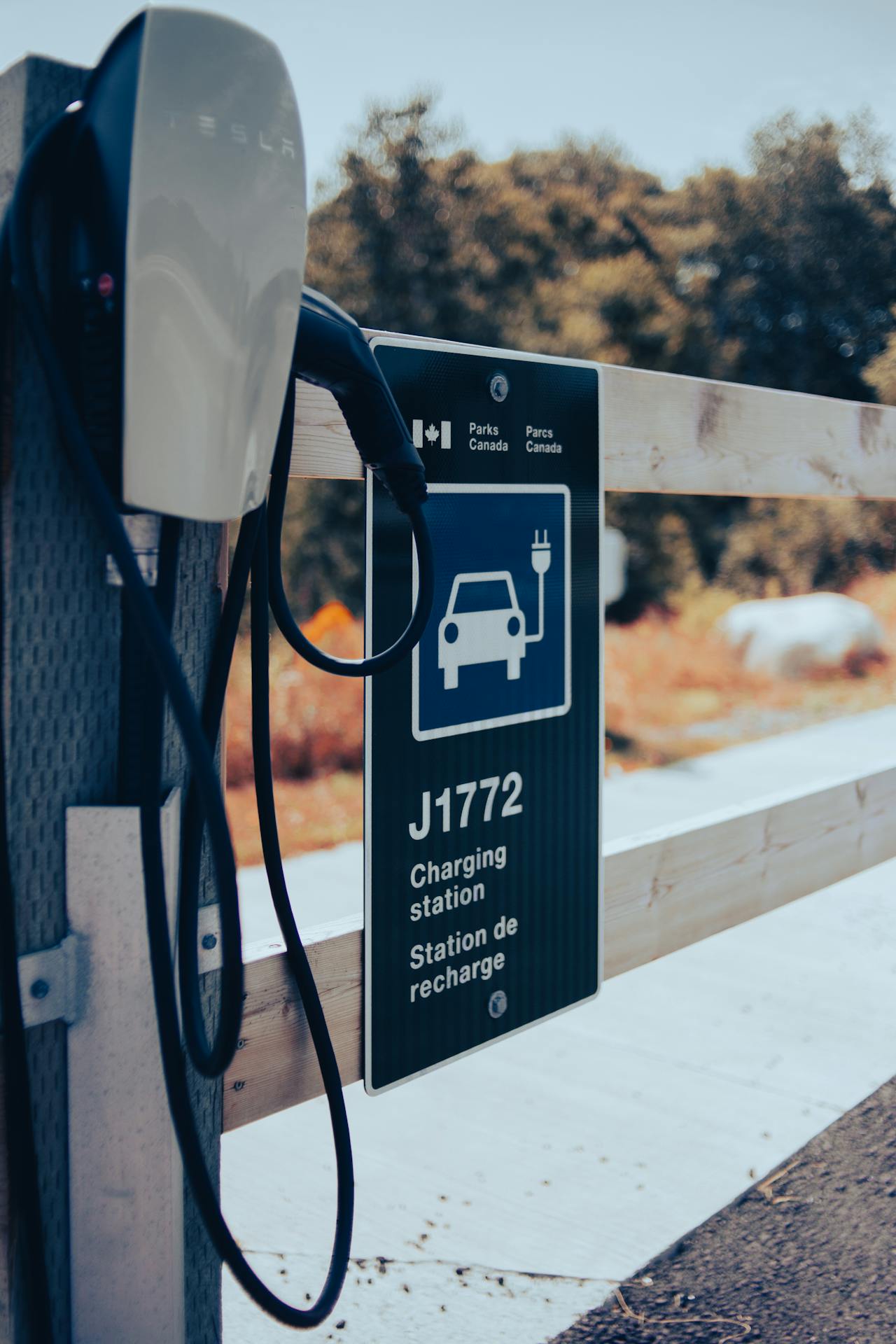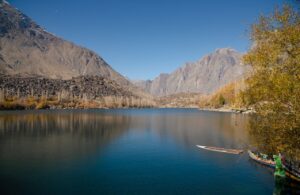Introduction
The list of electric vehicle charging stations in North Pakistan is becoming an essential resource for those embracing eco-friendly travel in this stunning region. As more travelers and locals adopt electric vehicles (EVs), the need for reliable charging infrastructure in areas like Gilgit-Baltistan, Khyber Pakhtunkhwa, and Azad Jammu & Kashmir is growing. With northern Pakistan’s vast natural beauty and increasing tourist influx, this list will help EV owners easily find charging stations, making it easier to explore the region sustainably. In this article, we’ll provide an overview of the key EV charging stations across northern Pakistan to support your eco-conscious journey.
Table of Contents
The Rise of Electric Vehicles in Northern Pakistan
Northern Pakistan, with its awe-inspiring landscapes and scenic beauty, has long been a popular destination for tourists, trekkers, and nature enthusiasts. Recently, however, this region is experiencing a significant transformation, with the rise of electric vehicles (EVs) gaining momentum. The adoption of electric vehicles is no longer limited to just urban centers; it is now extending to the northern regions of Pakistan, bringing a more sustainable, eco-friendly mode of transportation to the area.

Why the Shift to Electric Vehicles?
As environmental concerns become more pressing worldwide, many countries are looking for alternatives to traditional fuel-based vehicles. Pakistan, recognizing the environmental impact of its transportation sector, has made efforts to reduce carbon emissions by promoting the adoption of electric vehicles. This shift is particularly important in northern Pakistan, where the natural beauty and delicate ecosystems make sustainability crucial.
Electric vehicles offer several key advantages for travelers and residents alike in this region:
- Environmental Impact: EVs produce zero emissions, which is particularly beneficial in maintaining the pristine environment of northern Pakistan, where air quality can sometimes be compromised by traditional vehicles.
- Cost Efficiency: Operating an electric vehicle is more economical in the long run compared to gasoline or diesel-powered vehicles. As fuel prices rise, electric vehicles offer a more affordable alternative for residents and tourists.
- Government Support: The government of Pakistan has recognized the potential of EVs and has introduced policies to support their growth. These include tax incentives, subsidies, and the establishment of EV charging infrastructure, which has been pivotal in enabling the use of electric vehicles in remote regions like Gilgit-Baltistan, Khyber Pakhtunkhwa (KP), and Azad Jammu & Kashmir (AJK).
Government Policies Supporting EV Adoption
The Pakistan government has taken various measures to encourage the adoption of electric vehicles throughout the country, including in northern areas. Some key initiatives include:
- Electric Vehicle Policy: In 2020, the government launched the National Electric Vehicle Policy, aiming to reduce the country’s carbon footprint by promoting the use of electric vehicles. The policy includes provisions for tax exemptions on electric vehicle imports, incentives for local EV manufacturing, and the establishment of EV charging stations along major highways.
- Subsidies and Tax Breaks: To make EVs more affordable, the government has introduced several subsidies and tax breaks, particularly for electric cars, buses, and motorcycles. This has made EVs a viable option for the people of northern Pakistan, where income levels may be lower compared to urban areas.
- Partnerships with Private Sector: The government has also partnered with private companies to accelerate the establishment of EV charging stations, a critical infrastructure required for the success of electric vehicles. These charging stations are being installed in key locations across northern Pakistan, making EV travel more convenient for residents and tourists.
The Growing Demand for Electric Vehicles in Northern Pakistan
With the government’s support and growing awareness of the environmental benefits of EVs, the demand for electric vehicles in northern Pakistan is steadily increasing.
- Tourism Boom: Northern Pakistan, with its mesmerizing tourist destinations such as Hunza Valley, Skardu, and Naltar Valley, has seen a growing influx of eco-conscious travelers. Many of these visitors are eager to explore the region while minimizing their carbon footprint. Electric vehicles provide an ideal solution for these environmentally conscious tourists, allowing them to travel through the picturesque mountains and valleys without harming the environment.
- Local Adoption: In addition to tourism, local residents are also embracing electric vehicles due to the long-term cost savings and the reduced need for fuel. In places like Gilgit, Peshawar, and Muzaffarabad, the popularity of electric bikes and rickshaws has been on the rise, providing an affordable and efficient mode of transport for daily commuting.
- Eco-Tourism Initiatives: Several eco-tourism initiatives in northern Pakistan are encouraging the use of electric vehicles to protect the region’s unique biodiversity. Local tour operators are increasingly offering electric vehicles as an option for guided tours, reducing the environmental impact of mass tourism and promoting sustainable travel.
Challenges and Opportunities
While the rise of electric vehicles in northern Pakistan is promising, there are still several challenges that need to be addressed:
- Limited Charging Infrastructure: One of the main obstacles to widespread EV adoption in northern Pakistan is the limited availability of EV charging stations. However, the government and private sector are working to address this issue, with new charging stations being set up in key tourist destinations and major highways.

- Range Anxiety: The fear of running out of battery power before reaching a charging station (known as “range anxiety”) can be a concern for travelers in remote regions. However, as the EV charging network expands, this concern will gradually diminish, making electric travel more reliable.
Despite these challenges, the rise of electric vehicles in northern Pakistan presents a huge opportunity to drive the country towards a more sustainable future.
EV Charging Stations in Gilgit-Baltistan
Gilgit-Baltistan, often referred to as the “Paradise on Earth” due to its stunning landscapes, towering mountains, and crystal-clear lakes, is one of the most popular tourist destinations in northern Pakistan. As eco-friendly travel becomes more prominent, electric vehicles (EVs) are gaining traction in this region. However, the success of EVs in Gilgit-Baltistan heavily depends on the availability of charging stations that can support the growing number of electric vehicles.
In this section, we’ll explore the current state of EV charging stations in Gilgit-Baltistan, the role these stations play in promoting eco-tourism, and the future prospects for EV infrastructure in this scenic region.
The Need for EV Charging Stations in Gilgit-Baltistan
Gilgit-Baltistan is home to some of Pakistan’s most remote and beautiful tourist destinations, including Hunza Valley, Skardu, and Naltar Valley. These areas attract thousands of travelers each year, many of whom are eager to reduce their carbon footprint by traveling in electric vehicles. However, the availability of reliable EV charging stations has historically been a barrier to widespread adoption of electric mobility in the region.
In order to encourage eco-friendly tourism and ensure the sustainable growth of the EV market, it is essential to develop a robust EV charging network across Gilgit-Baltistan. This will not only provide EV owners with the confidence to explore the region without the fear of running out of battery power but will also help preserve the region’s natural beauty by reducing harmful emissions from traditional vehicles.
Existing EV Charging Stations in Gilgit-Baltistan
As of now, Gilgit-Baltistan has made significant strides in establishing EV charging stations in key locations, particularly in areas with high tourist traffic. These stations are crucial for supporting the growing number of electric vehicles in the region and ensuring that travelers can easily recharge their EVs during their journeys.
1. Gilgit City Center
Located in the heart of Gilgit, this EV charging station serves as a central hub for both local residents and tourists. The station is equipped with fast-charging facilities, allowing EV owners to quickly recharge their vehicles while exploring the city. Gilgit, being the capital of the region, is an important stop for travelers, and the charging station here ensures that visitors can easily access eco-friendly transportation options without the stress of running out of battery.
2. Hunza Valley Hub
Hunza Valley, a world-renowned tourist destination famous for its picturesque views and serene environment, is now home to one of the key EV charging stations in Gilgit-Baltistan. The Hunza Valley Hub is strategically located to cater to tourists traveling through the valley. Whether you’re exploring the famous Altit Fort, hiking to Rakaposhi Base Camp, or simply enjoying the local culture, this charging station provides a much-needed service for eco-conscious travelers.
3. Skardu Gateway
Skardu, often referred to as the gateway to some of the highest peaks in the Karakoram range, attracts adventure seekers from around the world. With trekking routes to K2 and other peaks, the demand for sustainable transportation is growing. The Skardu Gateway EV charging station is strategically placed near the city center, providing a convenient charging point for travelers before they embark on their trekking journeys. This station ensures that adventurers can explore the region while minimizing their environmental impact.
4. Naltar Valley Station
Naltar Valley, known for its ski resorts and beautiful landscapes, has seen an increase in both domestic and international tourism in recent years. The addition of an EV charging station in this area is a welcome development for those looking to enjoy the valley’s beauty while reducing their carbon footprint. With more visitors opting for electric vehicles, the charging station in Naltar Valley is an essential part of the region’s growing EV infrastructure.
Future Expansion of EV Charging Stations in Gilgit-Baltistan
While Gilgit-Baltistan has made impressive progress in establishing a network of EV charging stations, the region is still in the early stages of developing a comprehensive EV infrastructure. As demand for electric vehicles continues to rise, further expansion of charging facilities will be necessary to ensure that both locals and tourists can enjoy stress-free, eco-friendly travel.
1. Khunjerab Pass
Khunjerab Pass, one of the highest international border crossings in the world, is a popular destination for travelers in Gilgit-Baltistan. Known for its breathtaking views and proximity to the China-Pakistan border, Khunjerab is a key stop for many tourists. Future plans include the installation of EV charging stations at or near Khunjerab Pass, making it easier for travelers to explore the region’s most remote areas with electric vehicles. This would be a major step toward creating a fully connected EV charging network across Gilgit-Baltistan.

2. Deosai National Park
Deosai National Park, often referred to as the “Land of Giants,” is one of the highest plateaus in the world and an extremely popular tourist spot. As more people flock to Deosai for its breathtaking views, wildlife, and trekking opportunities, the need for additional EV charging stations in this area becomes more apparent. Installing charging stations near Deosai would not only encourage more visitors to use electric vehicles but would also help preserve the fragile ecosystem of the park by reducing vehicle emissions.
3. Expanding to Other Major Tourist Spots
In addition to Khunjerab Pass and Deosai, other well-known tourist destinations such as Shandur Pass, Ratti Gali Lake, and Fairy Meadows are likely to see EV charging stations in the near future. These developments would significantly enhance the overall EV infrastructure in Gilgit-Baltistan, making it easier for travelers to visit remote locations without worrying about finding a charging point.
EV Charging Stations in Khyber Pakhtunkhwa
Khyber Pakhtunkhwa (KP), one of Pakistan’s most diverse and historically rich provinces, is increasingly embracing electric vehicles (EVs) as a sustainable transportation option. With its picturesque landscapes, bustling cities, and growing focus on eco-tourism, KP has become an important area for the development of EV infrastructure. The establishment of EV charging stations is critical to support the rising number of electric vehicles in the province and make eco-friendly travel more accessible for both locals and tourists.
In this section, we will explore the current state of EV charging stations in Khyber Pakhtunkhwa, the role they play in promoting green mobility, and the future outlook for EV infrastructure in this region.
Why EV Charging Stations are Essential in Khyber Pakhtunkhwa
Khyber Pakhtunkhwa is known for its diverse geography, ranging from the lush green valleys of Swat to the mountainous terrain of the Hazara region. The province attracts a large number of tourists each year, eager to explore places like Naran, Kaghan Valley, Murree, and the stunning forts of Peshawar. As the popularity of electric vehicles grows, the demand for accessible charging stations in key tourist areas and urban centers has also increased.
EV charging stations in Khyber Pakhtunkhwa are essential for several reasons:
- Sustainable Tourism: With increasing awareness of environmental issues, eco-conscious tourists are seeking greener ways to travel. The availability of EV charging stations makes it easier for them to explore KP’s natural beauty while minimizing their environmental impact.
- Reducing Air Pollution: Air quality in major urban centers like Peshawar has often been compromised by traditional vehicles. EVs offer a solution to reduce emissions and improve air quality in the region.
- Economic and Social Benefits: The development of EV infrastructure can create jobs and stimulate local economies by attracting investment in the green technology sector. Additionally, more sustainable travel options can enhance the region’s image as an eco-friendly destination.
Existing EV Charging Stations in Khyber Pakhtunkhwa
While the EV infrastructure in Khyber Pakhtunkhwa is still developing, several key charging stations have already been established in urban areas and along major travel routes. These stations are a welcome addition for both residents and tourists who rely on electric vehicles.
1. Peshawar Central Station
Peshawar, the provincial capital and one of Pakistan’s oldest cities, is a hub for commerce, culture, and tourism. The Peshawar Central Station is one of the first EV charging stations in the province, serving as a vital resource for electric vehicle owners in the city. Strategically located near the city center, this station offers fast-charging services, enabling commuters and travelers to quickly recharge their vehicles. As the adoption of electric vehicles continues to grow, additional charging stations are expected to be established in and around Peshawar.
2. Mardan Expressway Charging Point
Mardan, a growing city located along the Mardan Expressway, is another key location for the development of EV infrastructure in Khyber Pakhtunkhwa. The Mardan Expressway Charging Point is strategically placed along this major highway, making it a convenient stop for travelers passing through the area. This charging station ensures that EV owners can recharge their vehicles while en route to destinations like Naran, Kaghan, and the scenic Hazara region.
3. Abbottabad Hilltop Station
Abbottabad, a popular hill station known for its cooler climate and lush green surroundings, is another area where EV infrastructure is being developed. The Abbottabad Hilltop Station offers a crucial charging point for tourists heading to the picturesque hills of Abbottabad or planning to continue their journey toward the famous Naran-Kaghan Valleys. Located in a high-traffic tourist area, this charging station plays a vital role in supporting eco-tourism in the region.
Future Expansion of EV Charging Stations in Khyber Pakhtunkhwa
Khyber Pakhtunkhwa is still in the early stages of developing a comprehensive EV charging network. However, the government and private sector are making significant strides toward expanding the infrastructure to meet the growing demand for electric vehicles.
1. Expansion along Major Highways
The expansion of EV charging stations along major highways connecting Peshawar to other parts of KP, such as the N-35 and N-55 routes, is a priority for the provincial government. These highways are commonly used by travelers heading to popular tourist destinations like Naran, Kaghan, and Murree. By establishing charging stations along these routes, the government aims to provide travelers with a convenient and reliable charging infrastructure.
2. Kaghan Valley and Naran Charging Stations
The Kaghan Valley and Naran, located in the Hazara region of KP, are among the most visited tourist destinations in the province. As the number of eco-conscious tourists visiting these valleys increases, the demand for EV charging stations is also growing. Plans are underway to establish EV charging stations in key areas like Naran, Batakundi, and Balakot to support the influx of electric vehicle users. These charging stations will provide much-needed facilities for tourists, allowing them to enjoy the natural beauty of the region without worrying about battery life.
3. Mingora and Swat Valley Development
Swat Valley, known as the “Switzerland of Pakistan,” is another region in KP that has become a major tourist hotspot. The scenic valley attracts visitors year-round, and many tourists are looking for sustainable ways to explore the area. Mingora, the capital of Swat, is expected to see more EV charging stations in the near future to meet the demand from tourists and local residents. Charging stations will be installed in key locations such as Fizagat Park, Malam Jabba, and other popular tourist spots to make electric mobility more accessible.
4. Public-Private Partnerships for EV Infrastructure
The provincial government is working with private companies to accelerate the establishment of EV charging stations across Khyber Pakhtunkhwa. These public-private partnerships are expected to play a key role in expanding the charging network, especially in remote areas where demand is high but infrastructure development has been slow. By collaborating with private investors and technology providers, KP aims to create a more comprehensive and user-friendly EV charging network.
EV Charging Stations in Azad Jammu & Kashmir
Azad Jammu & Kashmir (AJK) is one of the most breathtaking regions in Pakistan, known for its lush green valleys, pristine lakes, and towering mountain ranges. With its rich natural beauty and growing tourism industry, AJK has become an increasingly popular destination for both domestic and international travelers. As eco-conscious tourism continues to rise, electric vehicles (EVs) have emerged as a sustainable mode of transportation for visitors who want to explore the region while minimizing their carbon footprint.
The development of EV charging stations in Azad Jammu & Kashmir is essential to support the growing number of electric vehicles on the road. These charging stations will not only make eco-friendly travel more accessible but will also contribute to reducing the region’s environmental impact, helping preserve its natural landscapes for future generations. In this section, we will explore the current state of EV charging stations in AJK, the benefits they provide, and what the future holds for EV infrastructure in the region.
The Need for EV Charging Stations in Azad Jammu & Kashmir
With its popularity as a tourist destination, Azad Jammu & Kashmir (AJK) sees a significant flow of visitors throughout the year, especially to destinations like Muzaffarabad, Neelum Valley, Rawalakot, and Bagh. As the world shifts towards more sustainable forms of travel, many tourists are choosing electric vehicles to reduce their carbon footprint. However, the absence of a robust EV charging network in AJK has been a barrier to the widespread adoption of electric vehicles in the region.
The establishment of EV charging stations in key locations across AJK is necessary for several reasons:
- Sustainability and Eco-Tourism: AJK is known for its pristine natural beauty, and protecting the environment is crucial for preserving the region’s unique appeal. EVs produce zero emissions, making them an ideal transportation option for tourists looking to reduce their environmental impact while traveling.
- Supporting Electric Vehicle Adoption: The rise in EV ownership requires infrastructure to support this growing trend. The availability of charging stations will encourage local residents and tourists alike to switch to electric vehicles by ensuring they have convenient places to charge their cars.
- Attracting Eco-Conscious Tourists: As more people seek eco-friendly travel options, providing a reliable charging network will position AJK as a top destination for sustainable tourism. Tourists increasingly prefer destinations that align with their values of environmental conservation.
Existing EV Charging Stations in Azad Jammu & Kashmir
While the EV infrastructure in Azad Jammu & Kashmir is still in its early stages, some key areas have begun to establish charging stations to meet the growing demand for electric vehicles. These charging points are helping to promote greener travel in the region and ensure that tourists can explore AJK’s natural wonders without worrying about battery life.
1. Muzaffarabad Central Charging Station
Muzaffarabad, the capital of Azad Jammu & Kashmir, serves as a gateway to many of the region’s most popular tourist destinations. Located at the heart of the city, the Muzaffarabad Central Charging Station is one of the first EV charging points in AJK. Positioned near the city center, this station is easily accessible for both local residents and tourists traveling through the area. With its fast-charging facilities, it provides an efficient solution for those looking to quickly recharge their vehicles while exploring Muzaffarabad’s rich history and nearby attractions.
2. Neelum Valley Charging Hub
Neelum Valley, known for its crystal-clear rivers, lush forests, and scenic trekking trails, is one of the most visited tourist spots in AJK. The growing popularity of Neelum Valley among eco-conscious travelers has led to the establishment of an EV charging hub in the area. Located near the main entry point to the valley, the Neelum Valley Charging Hub allows tourists to recharge their electric vehicles before venturing further into the valley or heading toward other remote destinations like Keran and Sharda. This station provides a critical service for those traveling to this beautiful part of AJK, ensuring that electric vehicle owners can travel with peace of mind.
3. Rawalakot Charging Point
Rawalakot, often referred to as the “Pearl Valley,” is a popular hill station in AJK known for its pleasant weather and scenic beauty. As more tourists opt for electric vehicles to explore Rawalakot’s charming landscapes, the need for charging infrastructure has grown. The Rawalakot Charging Point, located near the city center, serves as a convenient stop for EV owners. It allows visitors to easily charge their vehicles while enjoying the sights and attractions of the city, such as Toli Pir and Banjosa Lake.
Future Expansion of EV Charging Stations in Azad Jammu & Kashmir
While the current EV charging network in AJK is limited, there are plans to expand and enhance the infrastructure to better serve both residents and tourists. As demand for electric vehicles continues to rise, the development of a more comprehensive charging network will be crucial in supporting this shift toward greener transportation.
1. Developing Charging Stations Along Key Tourist Routes
To facilitate eco-friendly travel throughout AJK, the government and private sector are working to establish additional EV charging stations along major tourist routes. Key locations such as the famous Ratti Gali Lake, Ramkot Fort, and other scenic spots in the region are expected to have charging stations installed in the coming years. These stations will make it easier for tourists to visit more remote areas without the concern of running out of battery power.
2. Upgrading Charging Infrastructure for Increased Demand
As more people adopt electric vehicles, the demand for reliable and fast-charging stations will increase. The charging stations in AJK will need to be upgraded to accommodate a growing number of EVs. This may involve increasing the number of charging ports at existing stations, offering fast-charging options, and installing solar-powered charging stations to further reduce the carbon footprint of EVs in the region.
3. Expanding EV Charging Networks in Towns and Villages
In addition to expanding charging infrastructure in tourist-heavy areas, there is also a push to install EV charging stations in towns and villages across AJK. This will help provide convenient access to charging points for local residents who are transitioning to electric vehicles. It will also ensure that rural areas, where EV adoption may be slower, are not left behind as the rest of the region moves toward greener transportation.
4. Collaboration with Private Sector
The success of EV infrastructure in AJK will depend on partnerships between the government and private companies. By collaborating with technology providers, energy companies, and local businesses, the government can accelerate the installation of charging stations in more remote areas. Public-private partnerships are also essential for developing innovative solutions like wireless charging or integrated solar charging systems, which would further promote sustainable energy use in the region.
Conclusion: The Future of EV Charging in Northern Pakistan
The development of EV charging stations across northern Pakistan, particularly in regions like Khyber Pakhtunkhwa, Gilgit-Baltistan, Azad Jammu & Kashmir, and beyond, is a crucial step toward fostering sustainable tourism, reducing carbon emissions, and enhancing eco-friendly travel options for both residents and visitors. As we look to the future, it is clear that the shift toward electric vehicles in Pakistan will require continued investment in infrastructure, policy support, and public awareness. From the rise of electric vehicles in cities like Peshawar and Muzaffarabad to the growing number of charging stations in tourist hotspots like Naran and Neelum Valley, northern Pakistan is on the path to becoming a model for eco-friendly travel in the region. These charging stations not only cater to the immediate needs of electric vehicle owners but also play a significant role in promoting environmental sustainability by offering travelers an eco-conscious way to explore the natural beauty of the north.
FAQ
Question1. Can I rely on EV charging stations during long trips in northern Pakistan?
Answer. Yes, EV charging stations are available along major routes and tourist spots in northern Pakistan. Plan your route in advance and use apps to locate charging stations to ensure a smooth trip.
Question2. How do I pay for charging at these stations?
Answer. Most charging stations accept mobile apps, credit cards, or cash. Some may also require a membership or registration for easy payment. Check payment options beforehand.
Question3. Are there incentives for electric vehicle owners in northern Pakistan?
Answer. The government offers tax breaks and subsidies to promote EV adoption. Check with local authorities or EV providers for current incentives in the region.




